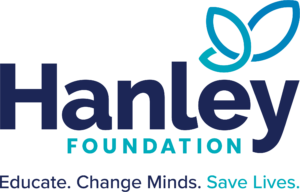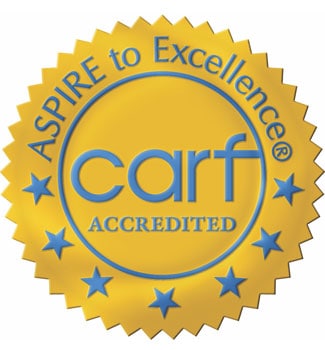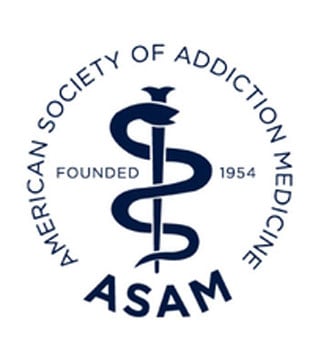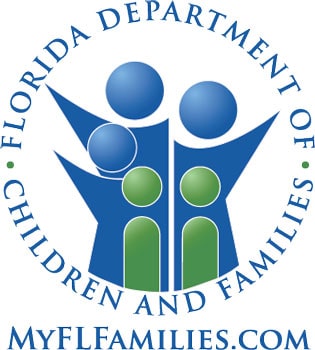Bipolar Disorder Treatment

Do you struggle with intense mood swings that disrupt your daily life? You may be living with bipolar disorder.
As one of the leading bipolar disorder treatment centers in Florida, Hanley Center has 40 years of experience treating patients with bipolar disorder and other co-occurring conditions. If you are living with bipolar disorder, you are not alone. With expert care and attention, you can discover ways to manage your symptoms and live a healthy, stable, and productive life.
To learn more about the most effective treatment for bipolar disorder for you, contact us directly or continue reading below.
What is Bipolar Disorder?
Bipolar disorder is a psychiatric disorder characterized by intense mood swings that include emotional highs (mania or hypomania) and lows (depression).
If you have this disorder, you may feel sad or even hopeless when you become depressed and lose interest in most activities.
When you are experiencing mania or hypomania, you may feel euphoric, energetic, or excessively irritable. These mood swings affect your sleeping patterns, energy levels, behavior, judgment, and clarity of thinking.
As a result, bipolar disorder often co-occurs alongside other mental health or substance use disorders. When these conditions are treated concurrently, the chances for your sustained wellness are significantly improved.
Three Different Types of Bipolar Disorder
There are three main types of bipolar disorder, including:
- Bipolar Disorder Type 1 includes at least one manic episode and periods of major depression (previously referred to as “manic depression”)
- Bipolar Type 2 patients have not experienced full-blown mania but do experience periodic high-energy periods and impulsiveness that alternate with depressive “lows.”
- Cyclothymia is a mild form of bipolar disorder that is often misdiagnosed as depression.
MENTAL HEALTH DISORDERS
Major Depressive Episode
An episode of major depression causes bipolar symptoms that substantially hinder your ability to function regularly at work, school, social settings, or relationships. Bipolar disorder is frequently misdiagnosed when you are in a depressive state. If you’ve been diagnosed with depression but still don’t feel you have a complete picture of your mental health, perhaps you haven’t been given the proper tools to find peace of mind.
A major depressive episode consists of five or more of the following symptoms:
- Depressed mood, including a sense of sadness, hopelessness, or tearfulness
- A marked decline in interest or enjoyment of almost all activities
- Significant loss or gain of weight while not dieting or intentionally trying to gain
- Sleeping too much or insomnia
- Slowed behavior or restlessness
- Fatigue or lack of energy
- Inappropriate guilt or feelings of worthlessness
- Indecisiveness or a decrease in the ability to think or concentrate
- Having a plan for, attempting, or thinking about suicide
Mania and Hypomania
Rather than only struggling with depression, people with bipolar mood disorder also experience periods of mania or hypomania. If you have struggled with depression but also recognize times when mania symptoms of bipolar disorder have occurred, you could possibly have bipolar disorder.
Both mania and hypomania episodes feature these symptoms:
- Feeling abnormally excited, jumpy, or wired
- An increase in activity, vigor, or agitation
- An exaggerated feeling of self-confidence and well-being (euphoria)
- A reduced need for sleep
- Hyperverbal or excessive talkativeness
- Racing thoughts
- Distractedness
- Lack of judgment, such as shopping sprees, sexual risks, or outlandish investments
Bipolar Symptoms in Females vs. Males
While bipolar disorder presents similarly in both genders, there are some potential differences in how it affects females:
- Earlier Onset: Studies suggest females may experience their first bipolar episode earlier in life compared to males.
- Rapid Cycling: Females may be more prone to experiencing rapid cycling, which means having multiple mood episodes (depressive or manic) in a short period.
- Hormonal Influence: Hormonal fluctuations during menstrual cycles, pregnancy, and menopause can potentially trigger mood swings or worsen symptoms in some women with bipolar disorder.
- Depression Focus: Research suggests depression may be the first presenting symptom in women more often than in men with bipolar disorder.
It’s important to remember that bipolar disorder affects everyone differently. If you suspect you have this condition, seek professional evaluation for an accurate bipolar disorder diagnosis and treatment plan.
Other Characteristics of Bipolar Disorder
Anxiety, melancholy, psychosis, and other features may accompany signs and symptoms of bipolar disorder. These symptoms may occur during pregnancy or change seasonally.
If you are a person with bipolar disorder, you may even enjoy periods of euphoria or greater productivity. However, this euphoria is almost always followed by an emotional crash, leaving you depressed, drained, and potentially in legal or financial difficulty. Despite these intense mood fluctuations, you may be unaware of how much these symptoms interfere with your life and the lives of your loved ones.
Both men and women are affected equally by bipolar disorder. The onset of this mental health disease usually begins between the ages of 15-25. Alcohol or other prescribed drugs should never be mixed with medications meant to control bipolar disorder. In fact, bipolar episodes may be triggered by illegal drug use or the misuse of prescribed drugs. If this disorder also co-occurs alongside addiction, you may be unlikely to recover and stay sober without multidisciplinary bipolar treatment.
Integrated Treatment for Bipolar Disorder is Key
Integrated bipolar treatment is a comprehensive approach that offers all the therapeutic resources needed to help you heal physically, mentally, emotionally, and spiritually. Bipolar disorder has no single cause, although the presence of trauma, addiction, or other mental health disorders may increase the frequency and intensity of your symptoms and relapse.
That doesn’t mean your experience is like everyone else’s — every person is different. In some cases, your bipolar disorder may lead to alcohol or other drug use. Other times, you may find that you will do anything to relieve your symptoms, including engaging in other addictions or unhealthy behaviors.
Addiction and Bipolar Disorder Treatment
Disorders that co-occur alongside addiction must be treated simultaneously, in the same place, and by the same treatment team to be effective. Our multidisciplinary, medically intensive program offers seamless co-occurring disorder treatment. Through a strengths-based, team approach, we work with you to manage not only the physical and mental symptoms of bipolar disorder but also your psychological and spiritual needs. Our compassionate staff members — medical professionals, licensed therapists, and psychiatrists — meet daily to discuss patient cases and develop solutions. Our specialized, integrated treatment model has been shown to improve outcomes with bipolar and substance use disorders. If you are looking for a higher quality of life, we are here to help.
Hanley Center has been treating people with bipolar disorders for four decades.
With the right help, we know people can and do recover.

Comprehensive Clinical Assessments
Every person with a mental health disorder deserves a treatment plan tailored to their individual needs. Beginning with a comprehensive behavioral health assessment, we ensure that bipolar disorders, co-occurring substance use disorders, and other mental health disorders are diagnosed and treated.
We work with you to tailor your bipolar disorder treatment plan to include all aspects of your well-being: body, mind, and spirit. Through clinical interviews and sessions with your primary therapist, a detailed assessment lays the groundwork for your personalized bipolar treatment plan.
For people with bipolar disorder, a comprehensive treatment plan may include the following:
- Cognitive behavioral therapy
- Brainspotting
- Medical care (including medication, when appropriate)
- Psychiatric services and ongoing care
- Biofeedback or neurofeedback
- Case management
- Spiritual care services
- Family education and programming
- Life skills training
- Continuing care planning
People Can and Do Find Healing with Bipolar Treatment
Although there is no cure for any mental health disorder, including bipolar disorder, many people succeed in leading incredible lives filled with hope and courage. Many research-based therapies and treatment interventions have proven to treat individuals living with mental health diagnoses effectively. The key is receiving integrated, intensive, personalized treatment.
Center for Brain Recovery
Co-occurring disorders can exacerbate and influence each other, which makes successful treatment more challenging. Our health psychology department, the Center for Brain Recovery (CBR), is an innovative program that provides specialized, evidence-based therapy treatments to address brain health. Our CBR services address the connection between trauma, addiction, and other co-occurring mental health disorders. We offer treatment to simultaneously address both conditions, providing a better chance for long-lasting recovery.
We also provide intensive psychological testing through the Center for Brain Recovery as part of our bipolar treatment program. We offer tests such as:
- Central Nervous System Vital Signs (CNS VS)
- Personality Inventory for DSM-5 – Brief Form (PID-5-BF)
- PsychEval Personality Questionnaire (PEPQ)
- Minnesota Multiphasic Personality Inventory-2 (MMPI-2)
Learn more about Hanley’s Center for Brain Recovery here.
Call 561.841.1033 today to get started.
Hanley Center: Most Insurance Accepted
Address: 933 45th Street
West Palm Beach, FL 33407




